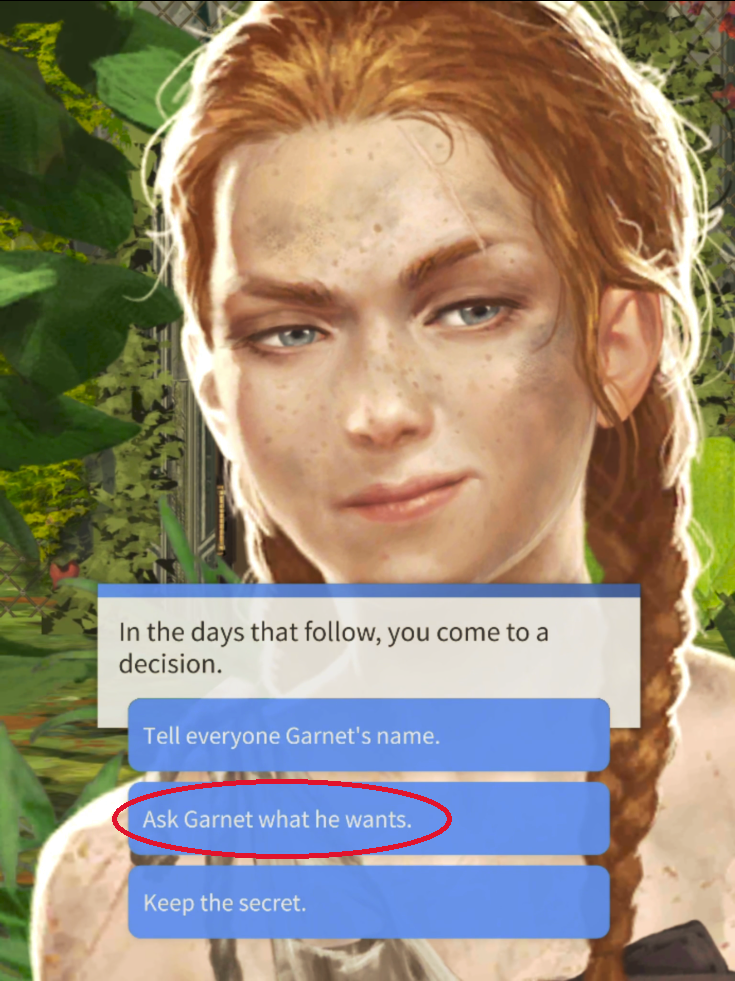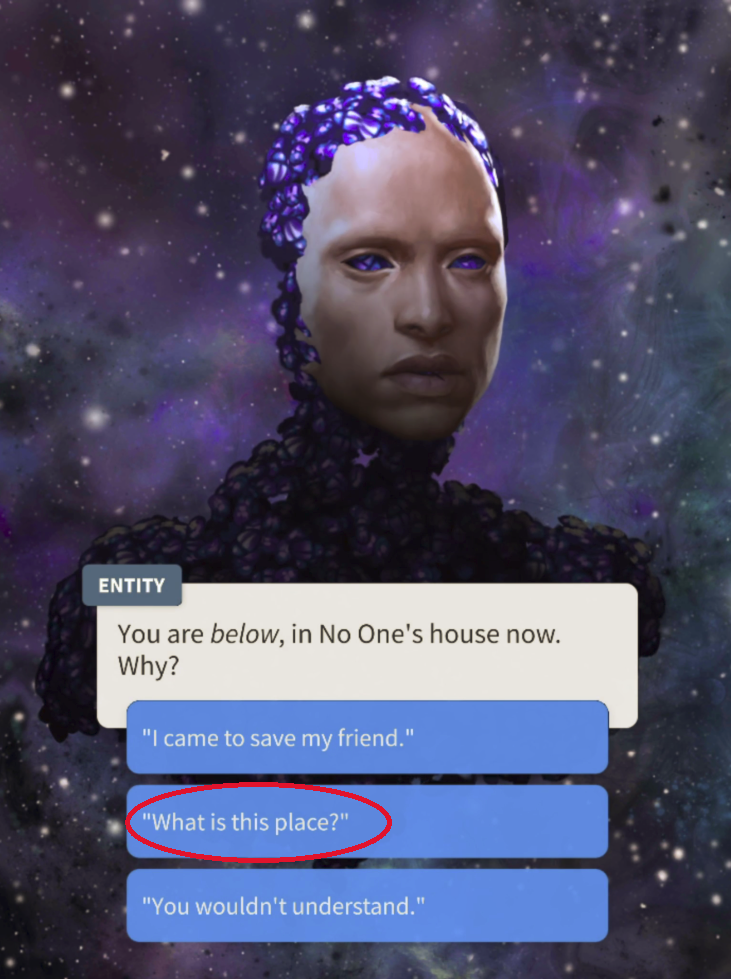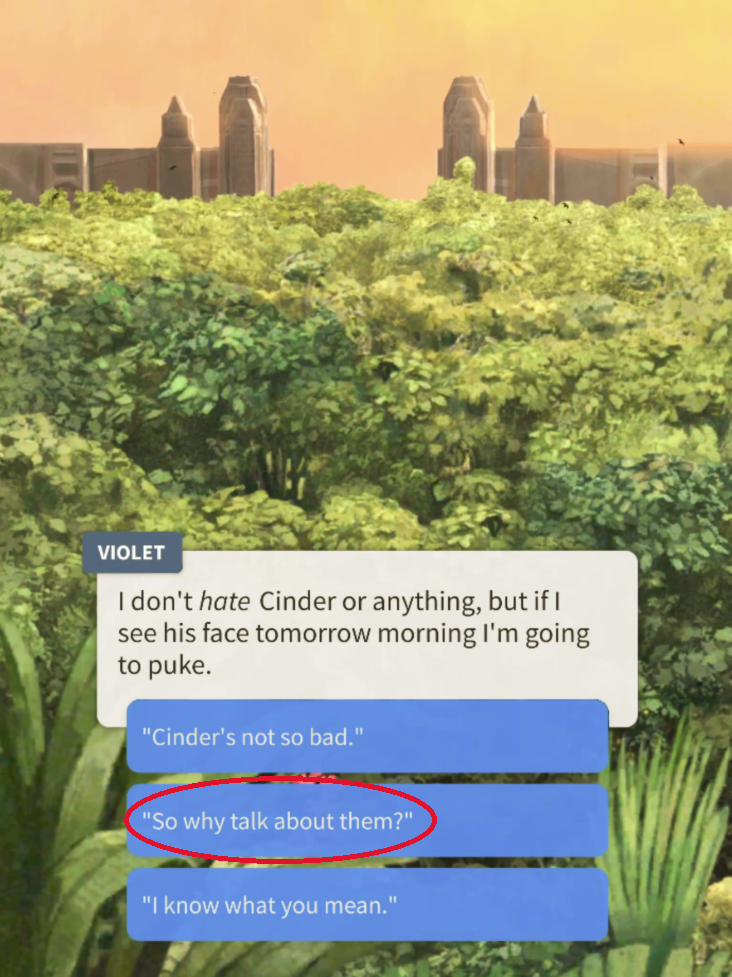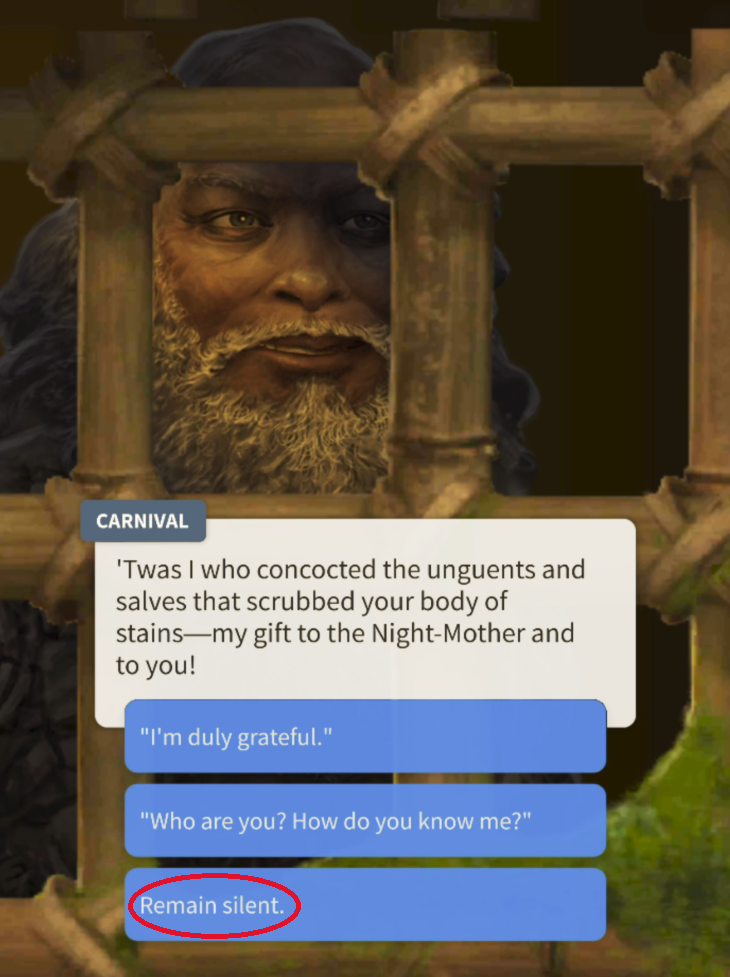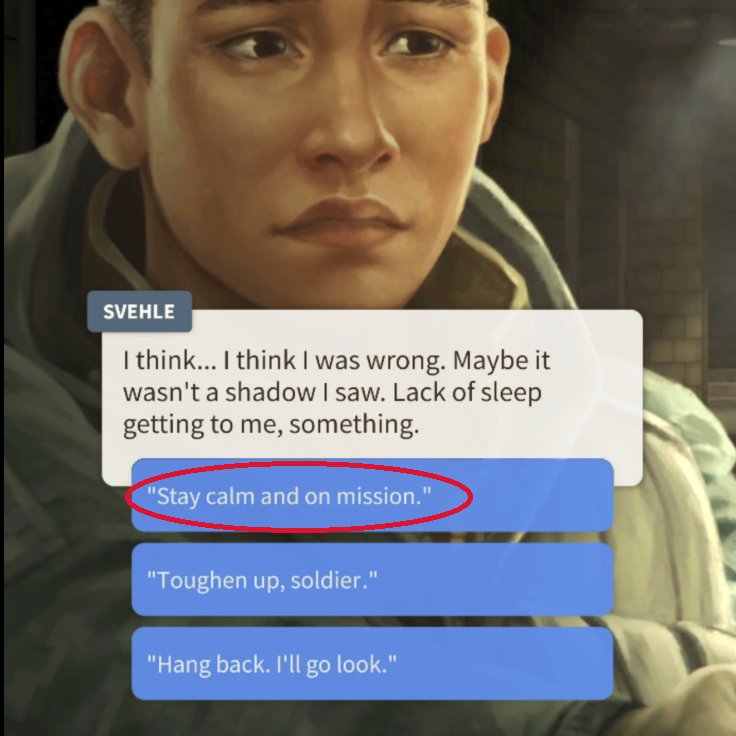It's Tuesday night and I feel like teaching some of what I've learned in 15 years of branching narrative video game writing. Let's go in-depth about one incredibly specific subject: neutral / fallthrough / catchall response options!
Player ownership of the protagonist in choice-based branching narrative games (a la BioWare, Telltale, mobile narrative games, etc.) is a vital aspect of the form.
The ability for the audience to shape a Player Character, to develop that character's inner life in her own mind, is unmatched in any other medium.
The Player determines the character's actions and THE MOTIVATIONS for those actions. The character's psychology can literally be as complex as the Player can imagine. However...
...this works best when there's enough space for the Player to develop those motivations. No game can offer enough options to support every interpretation imaginable; much of the character has to live in the Player's head, without necessarily appearing on the screen.
That's complicated. We're going to unpack it.
Generally, when presenting choices to a Player, we want those choices to be as interesting and compelling as possible.
Generally, when presenting choices to a Player, we want those choices to be as interesting and compelling as possible.
But compelling, dramatic choices tend to be revealing of character. And no game can support hundreds of options at every choice point for every possible character motivation a Player might imagine.
This sort of narrative CANNOT maintain its integrity if the Player is forced to constantly "rewrite" her characterization of the Player Character on the fly. You want your Player to feel like she has more than enough viable options at any given moment.
In the examples above, each moment contains a response which furthers the story but doesn't imply a huge emotional choice for the Player. The Player is asked to choose A or B, agree or disagree, but can sidestep the issue altogether if desired.
These "neutral" responses are vital if both A and B don't appeal to the Player... or if, perhaps, the Player likes A but not the WAY A is being expressed. Milquetoast option C works for anyone; thus, the Player is never forced to break character because of a lack of options.
Questions work well for this sort of neutral option. Tacit agreement and dead silence also serve, in certain sorts of stories--as a Player, I know what's going on in my silent character's head and the game won't contradict it.
The important thing is that I'm never forced to take a path that's outright WRONG for my character. Even if other characters misinterpret the Player Character's motivation, my character's inner life remains internally consistent.
"Neutral" responses aren't the only ways to go, though. Some responses are appropriate for any character because they're tied to the base character concept.
Here, for example (from @seankmckeever's X-Files), the Player is a marine on a mission. The Player can respond abrasively to her partner's fear or look into the issue (out of compassion or genuine belief), but our fallthrough is actually the TOP response.
There's no version of our marine who would absolutely break character by picking "Stay calm and on mission." It's not blandly neutral; rather, it reinforces aspects of the character we can be sure of and gives the Player an option if nothing else works.
Different sorts of narratives will use different sorts of fallthroughs. A comedy might treat the option to say something funny as a fallthrough, of sorts--it's entertaining and will never violate the characterization the Player has created.
In a quest-driven RPG, a fallthrough response can often boil down to "How do I move to the next step of this quest?"
That said, the strongest moments in a narrative will often have no "fallthrough" response at all. They'll work by creating multiple responses that, by overlapping, cover all reasonable Player Character actions while still leaving room for the Player to ascribe motivation.
Maybe we'll talk about that another time.
For many, many more rambles like this, visit http://www.alexanderfreed.com/category/writing/video-game-writing/ (where this thread may eventually appear in some other form).

 Read on Twitter
Read on Twitter
